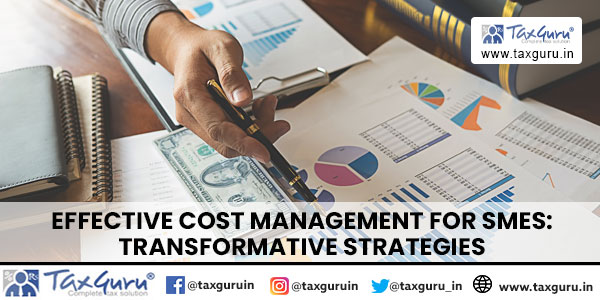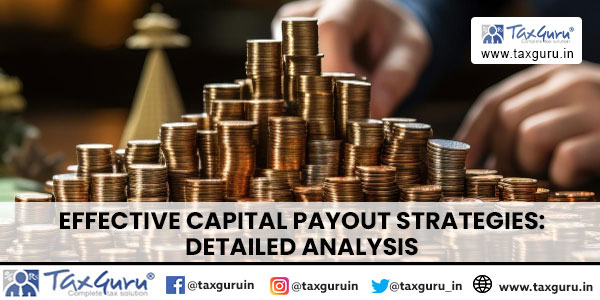The AAR Gujrat in case of Shree Sawai Manoharlal Rathi [Advance Ruling No. GUJ/GAAR/R/2020/10, Dated: 19th May, 2020] has held that Interest received from PPF, Interest received from Personal loans and advances to family members and Interest Income from Saving Bank account would be considered for the purpose of calculating the threshold limit of Rs.20.00 Lakh for registration under the GST Law. This ruling has again created a confusion, chaos & debate.
Facts of the case:
In the above case, applicant was an individual having not engaged in any business. His income includes ,(i) Rent receipts: Rs.9,84,000/-, (ii) Bank interest: Rs.3,000/-, (iii) Interest on PPF deposit:Rs.2,76,000/- and (iv) Interest on Personal Loans and Advances: Rs.7,49,000/-.Thus the aggregate total income was estimated to Rs 20,12,000/-. So a question was raised whether the said income of interest would form part of aggregate income for calculating threshold limit of Rs 20.00 Lakh for registration under GST law?
Provisions of Law:
Section 2(6) of the Central Goods & Services Tax Act, 2017 defines the term “aggregate turnover” as under:-
“aggregate turnover” means the aggregate value of all taxable supplies (excluding the value of inward supplies on which tax is payable by a person on reverse charge basis), exempt supplies, exports of goods or services or both and inter-State supplies of persons having the same Permanent Account Number, to be computed on all India basis but excludes central tax, State tax, Union territory tax, integrated tax and cess.”
“Exempt supply” is defined under Section 2(47) of the CGST Act, 2017 as –
“Exempt Supply” means supply of any goods or services or both which attracts nil rated of tax or which may be wholly exempt under section 11, or under section 6 of the Integrated Goods and Services Tax Act, and includes Non- Taxable supply.
“Nil rated supply” is nowhere defined in GST Law.
The basic difference between nil rated and exempt supply is that the tariff is higher than 0% in case of exempt supply. But there is no tax payable due to exemption notification. Whereas in case of NIL rated supply, the tariff is at NIL rate so there is no tax without the exemption notification.
Section 7 of the Central GST Act, 2017 prescribes scope of the term “Supply” which includes sale, transfer, exchange, barter, license, rental, lease and disposal. If a person undertakes either of these transactions during the course or furtherance of business for consideration, it will be covered under the meaning of Supply under GST.
Entry 27(a) of the Notification No. 12/2017- Central Tax (Rate) and Entry 28(a) of the Notification No. 9/2017 -Integrated Tax (Rate) dated: 28.06.2017 relates to the exemption of services by way of extending deposits, loans or advances in so far as the consideration is represented by way of interest. Therefore, such services are exempted from payment of GST and the individual is not required to discharge GST on the activity of providing services by way of extending deposits, loans or advances where the consideration is represented by way of interest.

Submission of Applicant:
The applicant submitted that the “Scope of Supply” given under Section 7 of the CGST Act, 2017 clearly states that the receipts should be “In the course or furtherance of Business”. The receipts from personal loans and advances, deposits and Bank Interest are not covered under “Business” as per the definition of “Business” given under Section 2(17) of the CGST Act, 2017. So in view of the same, the applicant was of the opinion that for the purpose of calculating the threshold limit of Rs.20.00 Lakh for obtaining registration under GST law, such interest receipts are not required to be aggregated.
Finding and decision of AAR:
Going by the definition of “aggregate turnover”, the Applicant is required to consider the value of both the taxable supply i.e. “Renting of immovable property” and exempted supply of service provided by way of extending deposits, loans or advances for which they earned interest income, to arrive at “Aggregate Turnover” to determine the threshold limit for the purpose of obtaining registration under the GST Act. The aggregate receipts of the applicant in the instant case are Rs 20.12 Lakhs i.e exceeding the threshold for registration. So he will liable to pay GST on the taxable turnover of rental income of Rs 9.84 Lakhs and balance amount of interest income Rs 10.28 Lakhs will be considered as exempt income not liable to GST.

Author’s View:
The above decision of the AAR in view of author appears to be incorrect and needs to be reviewed. Though it will applicable only to the party who sought it but still author feels that somewhere it is demonstrating opinion of revenue authorities to such transactions. If this ruling is presumed to be correct then it will have far reaching impact on various individuals and HUFs who are not engaged in any business rather earning only interest and rental income. Most of the retired persons and senior citizens will be badly affected by such mindset of revenue authorities and need to run for GST registration and compliances. The issues with this ruling are:
1. Object of earning Interest Income not examined
PPF Interest
The Public Provident Fund (PPF) is a savings-cum-tax-saving instrument in India, introduced by the National Savings Institute of the Ministry of Finance in 1968. The aim of the scheme is to mobilize small savings by offering an investment with reasonable returns combined with income tax benefits. So it is clear that the earning of interest from PPF can never be in the course or furtherance of business.
Saving Bank Account Interest
The primary objective of opening any Saving Bank account with Bank is to promote habit of saving. There are two types of saving bank accounts are in vogue in our Country viz: Basic Saving Bank deposit Account and Normal Saving Bank Account. Both the accounts are meant for saving and earning interest income thereon. However, based on the transactions limits etc. certain restrictions and charges are levied by Bank in each such account. These saving accounts are regulated by the RBI under the Banking Regulation Act, 1949. On the contrary current bank account is opened to run business.
Interest on Personal Loans
Further interest income from Personal Loans and Advanced to family/friends (irrespective of related party or not) can also never be called as ‘money lending’ business. It would be worthwhile to refer that for money lending business there has to be a specific license or approval from RBI which in the instant case is missing. Also, the applicant was not accepting loan from third parties at a lesser rate and then granting loans to friends & relatives at a higher rate to do any business.
2. Incorrect application /interpretation of legal provisions
The major problem in this ruling appears to the author is that it has failed to take into consideration the full facts of the case and the provisions of the u/s 7 of the CGST Act, 2017. In the instant case earning of interest income is considered as ‘Service’ by the Ld. Authority and relying on the exemption notification they arrived at a conclusion that interest would form part of ‘aggregate turnover’ being exempted service. But they never attempted to appraise the fact that any income included in aggregate turnover need to be amounts to Supply first in terms of Section 7(1)(a) of CGST Act, 2017. Also, the applicant was never into any business. So without any business or in furtherance of business how can there be a supply u/s 7?
If we read section 7 then it comes to light that scope of Supply is very vast and any transaction to be called as ‘Supply’ must satisfy the test laid down under said section. Further section 7(1) (a) states that supply includes all forms of supply of goods or services or both such as sale, transfer, barter, exchange, license, rental, lease or disposal made or agreed to be made for a consideration by a person in the course or furtherance of business. So it implies that the supply must be done for consideration and supply has to be in the course or furtherance of business. So these twin conditions must be satisfied for any transaction to be called as ‘supply’. Further wherever the legislature intended to treat a transaction as ‘Supply’ without satisfying the conditions of ‘consideration’ & ‘furtherance of business’ the law has been drafted accordingly. Reference can be made to section 7(1) (b), section 7(1) (c), Sch- I & II to the said section. But in the instant case though the applicant is rendering services by way of extending deposits, loans or advances where the consideration is represented by way of interest. But the same was purely personal in nature and without in the course or furtherance of any business. So the basic test laid down u/s 7 is not satisfied and thus taxable event never occurred. Further exemption notification is applicable only to such transactions which are otherwise taxable Supply under section 7 of the Act. So exemption notification cannot exempt a transaction which per se is not a supply. Though Govt. has got powers u/s 7 to notify any transactions as ‘Goods’, ‘Services’ or ‘neither goods nor services’. Thus above notifications in view of author are referring only such services which are in the course or furtherance of business of extending deposits, loans or advances but however to provide relief, it was exempted from tax. But unfortunately the authority has merely relied upon such exemption notifications without considering the undisputed fact that applicant were never into any business.
3. Reporting in ITR not examined
Apart from above legal provisions one can draw an inference from the Income Tax Return (ITR) where an assessee is reporting interest income as ‘Business income’ or ‘Income from other sources’. Generally, people invest money in PPF and deposit in saving bank account out of some savings etc. and interest from which is reported as income from other sources only. So on this footing also if the views of the authority are accepted then it will be a situation where same transaction will be classified differently under Income tax law and GST law which in the opinion of author will create a mess.
4. Conclusion
The author feels that the above ruling is certainly a perverse one. If we read the inclusive definition of business u/s 2(17) it covers all the activities as business irrespective of volume, frequency, recurrence etc. But still Investment activities out of one’s saving for earning interest would never fall under this definition. Nor it will be in the furtherance of business. So this ruling will face judicial scrutiny and the applicant has a good case to win. The author came across one more AAR of Karnataka in case of M/s Anil Kumar Agarwal [AAR no: KAR ADRG30/2020 dated: 04.05.2020] wherein the similar views were expressed without examining whether such services are in the course or furtherance of business. So let’s wait for suitable clarification from Govt. and hope at last good sense will prevail.
Disclaimer: The above expressed views are purely the personal views of the author. The possibility of other views on the subject matter cannot be ruled out. So the readers are requested to check and refer relevant provisions of statute, latest judicial pronouncements, circulars, clarifications etc before acting on the basis of the above write up. The author is not responsible in anyway.
The author is a practicing Chartered Accountant at Guwahati and can be reached at: manoj_nahata2003@yahoo.co.in
























Multiple AARs should be scrapped for avoiding unnecessary confusion. Case in point is recent one on Director remuneration.
Well explained article sir